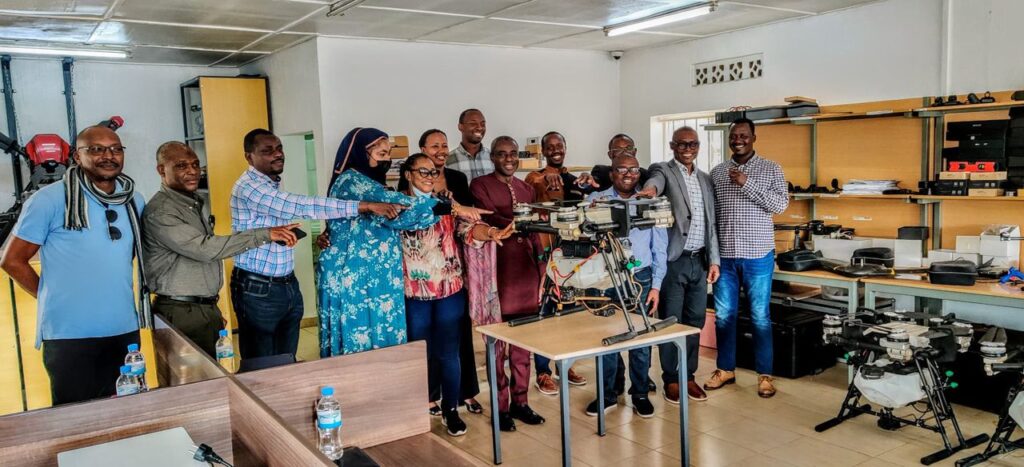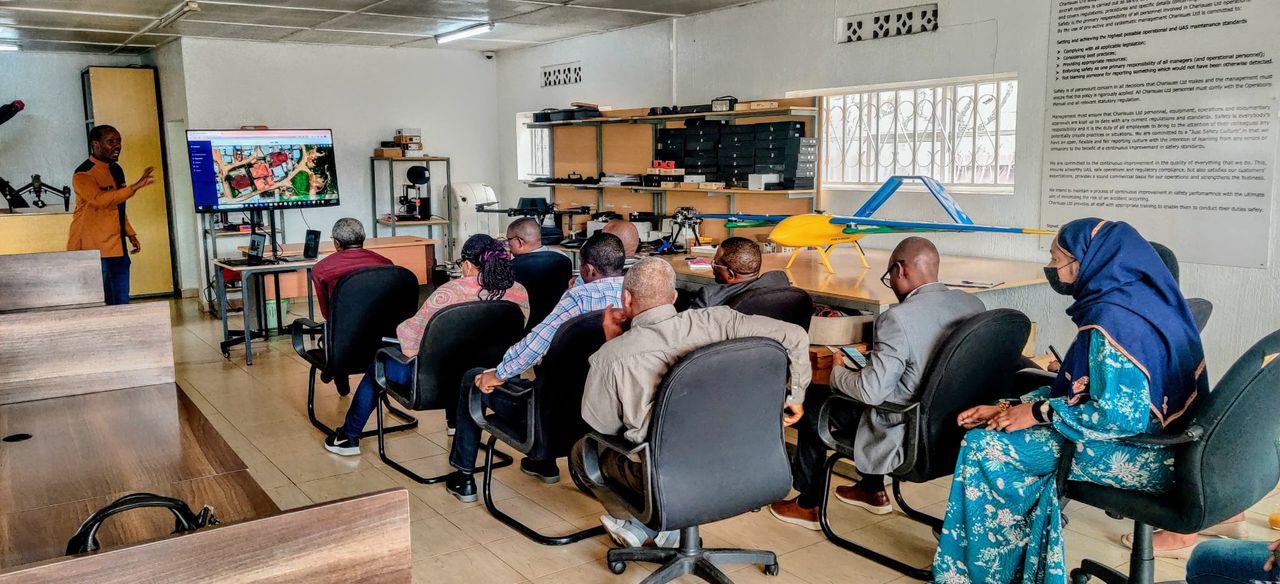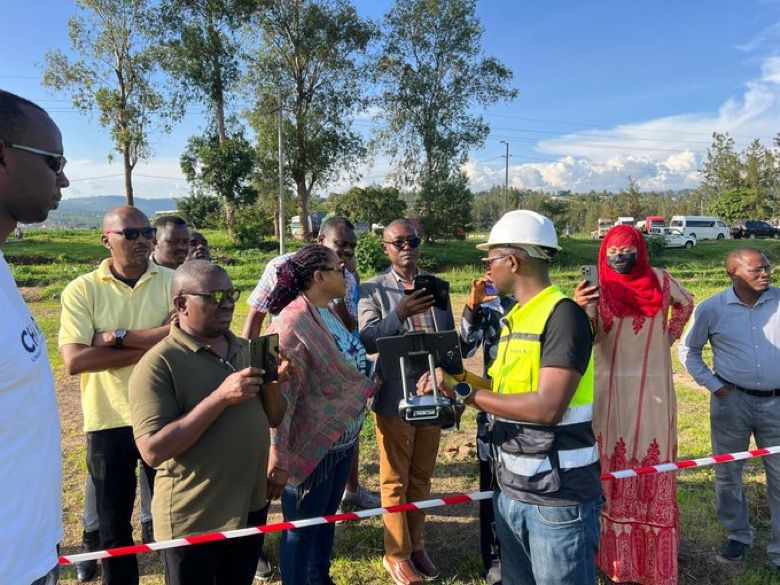The Federal Ministry of Health in Nigeria is exploring innovative drone technology as an option to combat malaria in the country.
Charis Unmanned Aerial Solutions (Charis UAS) in Rwanda, which hosted a delegation from Nigeria’s Ministry of Health, says that the team assessed capabilities in using drone technology in malaria control.
This visit is part of the Nigerian government’s ongoing efforts to enhance public health initiatives through advanced technology, particularly in vector control strategies, Charis UAS says.

This method reduces chemical usage and minimizes environmental impact while effectively controlling mosquito populations. Charis UAS emphasises that their custom-built drones are designed to be cost-effective while ensuring operational success. This affordability is vital for widespread implementation across various regions in Nigeria.
Charis UAS: Drones can deliver targeted interventions in hard-to-reach areas
According to the company, the delegation included key officials from the Ministry of Health, including representatives from various health departments focused on malaria control. The purpose of the visit was to assess Charis UAS’s capabilities in utilising drone technology for detecting mosquito breeding sites and conducting precision larvicide spraying to control malaria-carrying mosquito populations.
Drones represent a promising technological advancement that can enhance existing malaria control strategies by providing targeted interventions in hard-to-reach areas: Charis UAS says it demonstrated its drone technology, showcasing how it detects mosquito breeding sites and executes precision spraying of larvicides. The delegation witnessed live operations, including the planning of drone routes for accurate spraying and real-time data collection.

With the country accounting for a substantial portion of global malaria cases, malaria remains a significant public health challenge in Nigeria. Traditional methods of controlling mosquito populations, such as insecticide-treated bed nets and indoor residual spraying, have made progress, but are often insufficient alone. Innovative approaches like drone technology are being explored to complement these strategies, Charis UAS says.
Drones, Charis UAS says, have been increasingly recognised as effective tools for vector control due to their ability to access remote or difficult terrains quickly. “They can be equipped with advanced imaging technology that allows for the identification of mosquito breeding sites and the application of larvicides with precision. This capability is crucial in regions where conventional methods may fall short due to accessibility issues.”
During the visit, Charis UAS provided a comprehensive overview of its operations, according to the company. Charis Analytics uses drones equipped with high-resolution cameras and sensors to identify potential mosquito breeding sites. This technology allows for rapid surveys of large areas, including wetlands and other hard-to-reach locations. Once breeding sites are identified, drones are programmed to execute targeted larvicide spraying.

This method reduces chemical usage and minimizes environmental impact while effectively controlling mosquito populations. Charis UAS emphasises that their custom-built drones are designed to be cost-effective while ensuring operational success. This affordability is vital for widespread implementation across various regions in Nigeria.
At the Rugende Wetland, the delegation witnessed live demonstrations of drone operations targeting identified mosquito breeding sites. The demonstration highlighted how Charis UAS showcased how they plan precise routes for drones to ensure effective coverage and minimize overlap during spraying operations. The live operation illustrated the drones’ capabilities in real-time, showcasing their efficiency in executing larvicide applications directly over breeding sites without endangering human operators.
Source of Article
